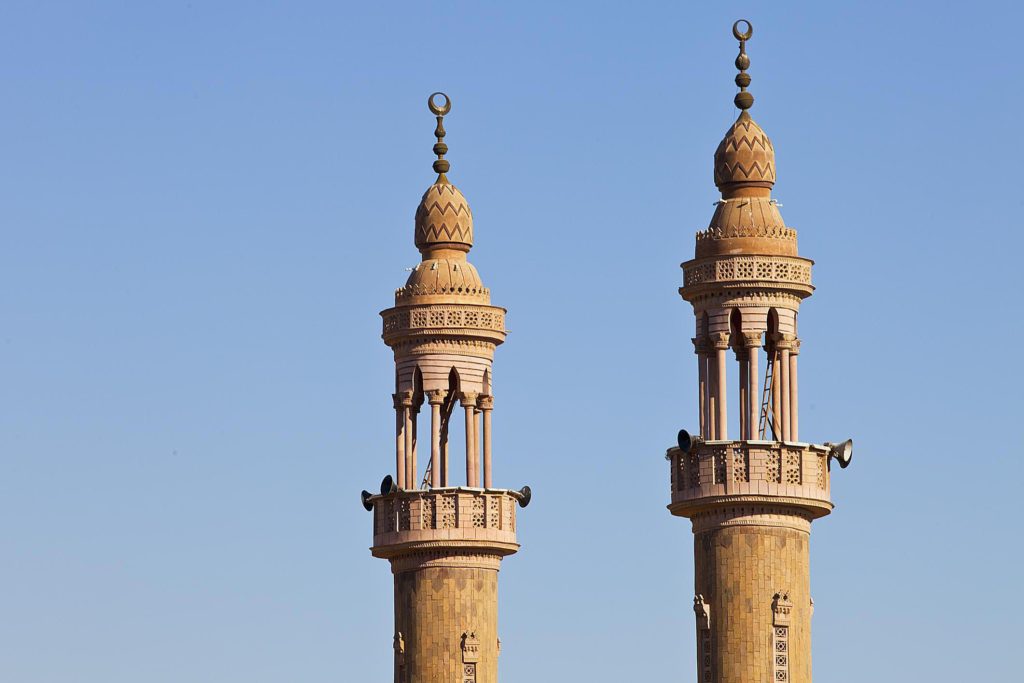he Hanafite imam had made great preparations on behalf of his son for this night. He produced four candle-bearing chande-liers of varying styles, some being like trees with branches laden with all kinds of fruits, fresh and dry, and some being.without branches. They were arranged in line before his hatim, on whose summit were boards and planks covered with lamps, torches, and candles, that illuminated all the hatim until it shone in the air like a great crown of light. The candles were brought for-ward in brass candlesticks, and then was set in place the mihrab with the wooden balustrades, its upper part ringed with candles and itself encompassed by candlesticks that threw a halo of light around it.
A great description of these extravagant creations
 example of minaret
example of minaret